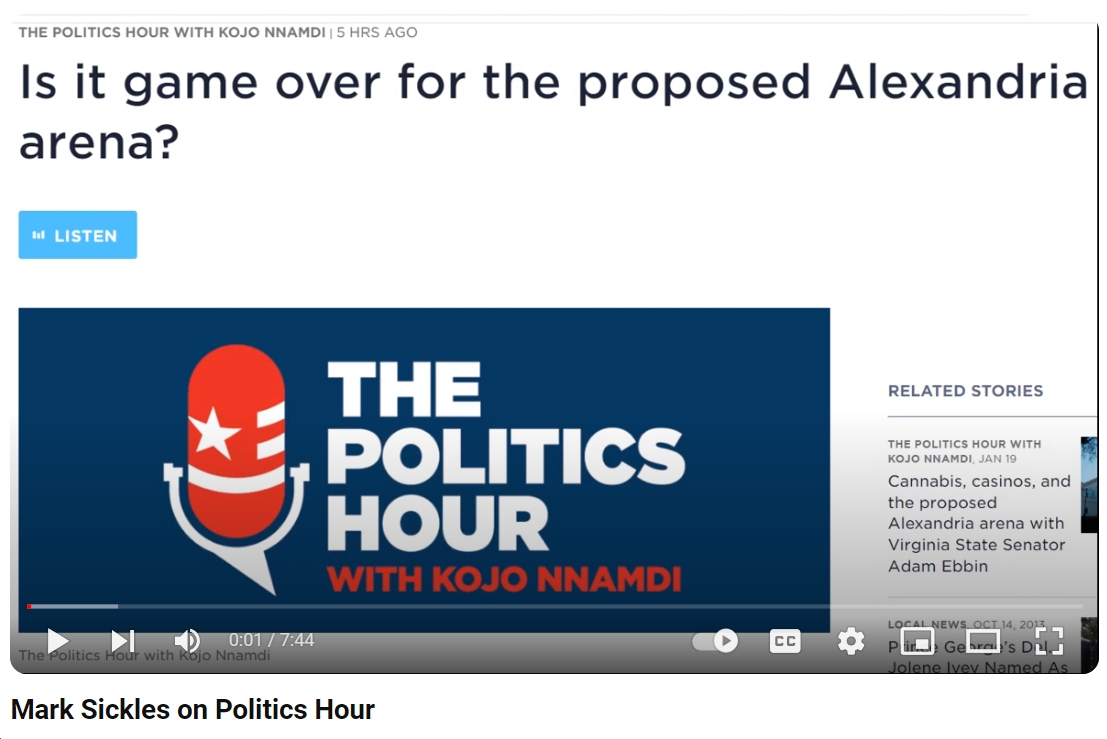 Let’s just say, something tells me that Virginia Senate Democrats are not going to agree with this! The key conclusions: 1) “Contrary to the Democrats allegations, there is nothing in the Constitution of Virginia that limits the Lieutenant Governor’s ability to vote on organizational matters;” and 2) “However, I have further concluded that the Constitution of Virginia does limit the Lieutenant Governor’s ability to vote on certain other matters.” (e.g, the budget, any bills to issue debt, and election of judges). We’ll see you in court, Mr. Lieutenant Governor! 🙂
Let’s just say, something tells me that Virginia Senate Democrats are not going to agree with this! The key conclusions: 1) “Contrary to the Democrats allegations, there is nothing in the Constitution of Virginia that limits the Lieutenant Governor’s ability to vote on organizational matters;” and 2) “However, I have further concluded that the Constitution of Virginia does limit the Lieutenant Governor’s ability to vote on certain other matters.” (e.g, the budget, any bills to issue debt, and election of judges). We’ll see you in court, Mr. Lieutenant Governor! 🙂
Friends,
Earlier today I issued an advisory ruling regarding my ability to break tie votes on certain matters that may come before the Senate of Virginia during the upcoming legislative session. I am writing to make you aware of that ruling and the reasons for it.
First, a bit of background information.
As a result of the November elections the Senate of Virginia now has 20 Republicans and 20 Democrats. Because of this equal division my role as President of the Senate will take on added visibility and significance during the upcoming General Assembly session.
For example, with my vote we will be able to organize the Senate with a Republican majority. That means we will have a Republican Majority Leader, Republican committee chairs and Republican majorities on Senate committees.
The Democrats, in an effort to prevent us from organizing the Senate with a Republican majority, recently filed suit seeking to have a court rule on my ability to vote on certain issues that may come before the Senate.
First, they argued that I cannot vote on organizational issues because I am not am elected “member” of the Senate. They argued that the Constitution of Virginia says that only elected “members” of the Senate can vote on organizational issues.
Second, they argued that I cannot vote on certain other types of legislation (such as appropriation bills, tax bills, constitutional amendments, etc.) because the Constitution of Virginia limits votes on such issues to elected “members” of the Senate.
The Democrats initially asked the court to issue an injunction to prevent me from voting on these matters, but the court properly rejected that request. However, the case is still pending on its merits and I felt it was important for me to clearly state my position on these issues in advance of the upcoming General Assembly session.
My job as President of the Senate is to preside over the Senate fairly, and properly enforce the requirements of the Constitution of Virginia, the Rules of the Senate and normal parliamentary procedure. I take those responsibilities very seriously.
So, for the past few weeks I have been undertaking a detailed review of the Constitution of Virginia in an effort to determine what matters I can and cannot vote on.
In addition to my own review I have carefully reviewed past legal opinions on this issue that have been issued by the Attorney General, and I have also consulted with my own legal counsel and other respected sources.
Based on this review I have reached the following conclusions:
The general premise in the Constitution of Virginia is that the Lieutenant Governor shall have both the right and duty to vote on matters that come before the Senate and result in an equal division. For example, Article V, § 14 of the Constitution of Virginia provides as follows:
The Lieutenant Governor shall be President of the Senate, but shall have no vote except in case of an equal division.
Stated differently, Article V, § 14 of the Constitution of Virginia gives the Lieutenant Governor broad authority to vote on any matter that comes before the Senate and results in an equal division, unless another part of the Constitution specifically limits the Lieutenant Governors ability to vote.
Contrary to the Democrats allegations, there is nothing in the Constitution of Virginia that limits the Lieutenant Governor’s ability to vote on organizational matters, and should such matters come before the Senate and result in a tie vote I fully intend to cast the deciding vote on those issues.
However, I have further concluded that the Constitution of Virginia does limit the Lieutenant Governor’s ability to vote on certain other matters.
For example, the Constitution of Virginia specifically requires that in order for certain types of legislation to pass this legislation must be approved by a “majority of the members elected to each house” of the General Assembly.
This limitation applies to the final passage of a narrow classification of bills, including appropriation bills, tax bills, constitutional amendments, the election of judges and the creation of new offices.
Clearly, the Lieutenant Governor is not an elected “member” of the Senate. While the Lieutenant Governor plays an important role in the operation of the Senate in his capacity as President of the Senate, he is not an elected “member” of the Senate.
Accordingly, it is my belief that these constitutional limitations do in fact prevent the Lieutenant Governor from voting on the final passage of this narrow classification of bills.
I would note that my interpretation of these constitutional issues is consistent with past legal opinions that have been issued by the Attorney General of Virginia. In addition, this interpretation is consistent with the advice I have received from numerous other legal sources that I have consulted with during my review.
While this ruling will protect my ability to vote on important organizational issues, it will limit my ability to vote on the final passage of certain other types of legislation. However, I feel it is the proper constitutional interpretation.
Needless to say, this is a complex issue and I know that some people will agree with my ruling while others may disagree. However, throughout my service as Lieutenant Governor I have tried to preside over the Senate in a fair and impartial manner and I will continue to do so.
In addition, I have taken a solemn oath to uphold the Constitution of Virginia, which allows us to faithfully serve the people who elected us to our offices. I believe that what I have outlined above is a correct and impartial interpretation of the Constitution of Virginia.
I hope this summary will help you understand the issues I addressed in my ruling and the reason for my actions. If you would like to review a full and complete copy of my ruling you may do so by accessing the following link: Bolling Memorandum on Tie-breaking Powers of the Lieutenant Governor.
Sincerely,
Lieutenant Governor Bill Bolling
















